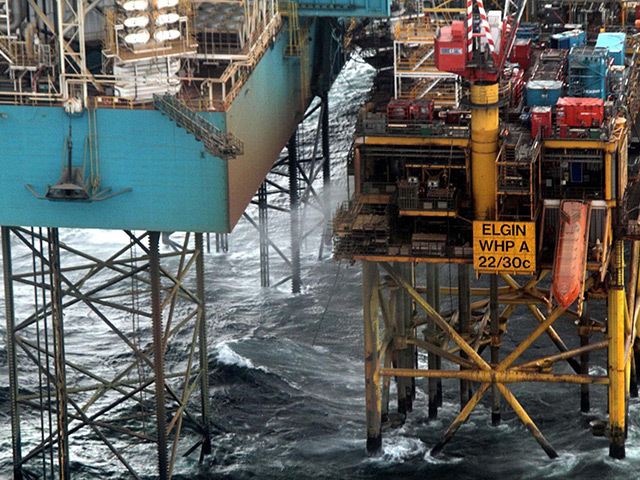
Total has given Offshore Europe delegates a rare insight into life inside an oil company dealing with a major environmental spill.
On March 25 last year, a North Sea catastrophe was narrowly avoided when a serious gas leak forced the shutdown of the Elgin/Franklin fields complex for the best part of 12 months.
The huge gas leak at the Elgin wellhead platform stemmed from retired production well 22/30c-G4, which was being permanently plugged and decommissioned.
Fortunately for operator Total, there were no injuries and 219 non-essential personnel were evacuated from the neighbouring bridge-linked PUQ (process, utilities, quarters) platform and the nearby Rowan Viking jack-up rig, which was in-field to decommission the well in question.
This left only the most essential personnel behind who, soon after, were also evacuated, leaving the Elgin/Franklin infrastructure smothered in a cloud of gas and with condensate spewing into the sea, resulting in a fine sheen of hydrocarbons gradually spreading.
Rachel Keown, an environmental specialist with the firm, told an audience at the conference yesterday how the firm’s emergency response plan swung into action.
She also revealed that more than 100 flights and satellites were used to monitor the spread of the sheen.
 But she said the firm’s plans for using chemicals to disperse the oil “was not as clear as it could have been”.
But she said the firm’s plans for using chemicals to disperse the oil “was not as clear as it could have been”.
With a spill of this magnitude, the Secretary of State for energy sends a representative into a company’s HQ, and if he or she is not happy with its plans to tackle the incident, they can assume control.
In this instance, the government was happy with what Total’s plans were – a top kill operation and two relief wells. The firm sent up 101 flights to monitor the near-three mile sheen. Satellites also produced up to date information on where it had spread.
A Hercules crew was placed on stand-by, as were firefighting vessels.
Seabed and water tests had to be carried out.
The firm did find oil contamination on the seabed – but found that the fluid was of Middle Eastern origin, meaning it must have spilled from a tanker.
The leak eventually stopped after 51 days. Production on the platform has now resumed.
Recommended for you
